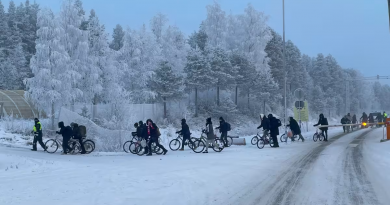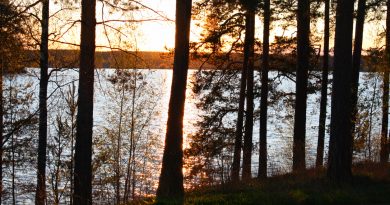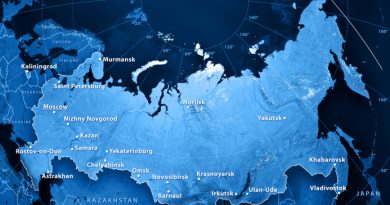Russia presents massive five-year plan to boost Arctic energy sector

Russian investments in regional infrastructure and natural resource development will over the next years be equivalent to the country’s federal budget on health and education.
The sum is 5.5 trillion rubles, Minister of Natural Resources Dmitry Kobylkin said in a government meeting in Sabetta on December 10th. Along with Prime Minister Dmitry Medvedev and other key government ministers and business leaders, Kobylkin had made it to the remote site on the coast of the Yamal Peninsula.
And that sum only covers the period until 2024, Kobykin made clear. In the subsequent years, investments will be significantly higher.
“We have made estimates, based on existing investment programs for the period until 2050, and the sum is about 13.5 trillion rubles”, the minister told Premier Medvedev (in Russian).
And only 900 billion rubles (€12 billion) of this sum will be provided by the federal budget, he made clear. The rest – 12.6 trillion (€167.8 billion) – will be invested by companies.
Massive investments
The figures delivered by Kobylkin cover investments in regional infrastructure and natural resource development, including railway construction, new sea ports and development of hydrocarbon and coal fields.
The Arctic 5-year plan comes as government officials hectically try to cope with President Vladimir Putin’s so-called May Decrees, which include a boost in shipping on the Northern Sea Route to 80 million tons of goods by 2024.
The 5.5 trillion investment sum mentioned by Minister Kobylkin is comparable to what the Russian government today invests in healthcare and education combined. The country’s federal budget for 2018 includes a total of 663.2 billion rubles in education and 460.3 billion in healthcare.
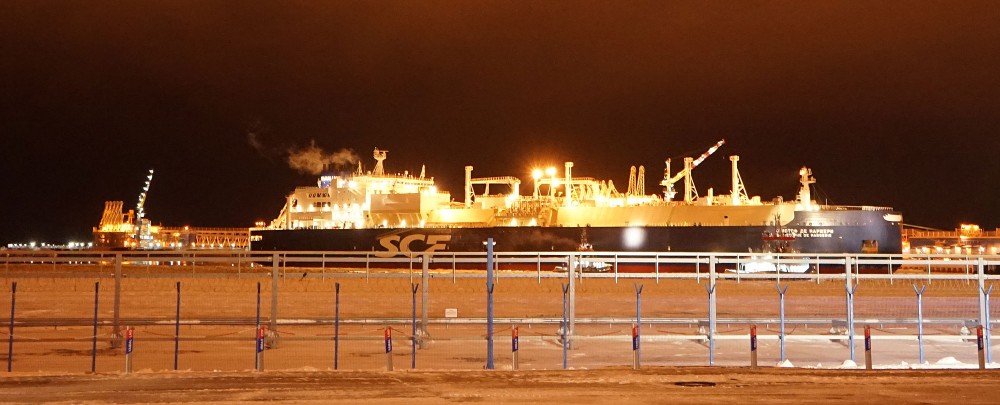
Focus on energy sector
There was no talk about the aggravating and potentially devastating climate changes that is unfolding in the Arctic. The meeting headed by PM Medvedev had its focus not on protecting nature, but on exploitation.
According to Medvedev, the Arctic is Russia’s number one natural resource region, and its strategic importance is immense.
“This is where we decide our two most important tasks – the providing of the national security of our country and, of course, its economic interests”, he underlined.
“Our focus should be on the development of huge so-called anchor projects, that will create completely new conditions for the development of the Northern Sea Route and its year-round utilization.”
Putting the Northern Sea Route to use
The meeting in Sabetta was held as Novatek officially launched the third train in its Yamal LNG project, consequently boosting production to 16.5 million tons per year.
And more is in the making. By 2035, Russia intends to increase its stake in global production of liquified natural gas from the current 4 percent to 20 percent. Several new projects are in development, among them the Arctic LNG-2 on the Gydan Peninsula.
According to Dmitry Medvedev, Novatek’s two LNG projects – the Yamal LNG and the Arctic LNG-2 – will alone bring more than $30 billion per year in foreign currency revenues.
The two projects will alone account for 40 million tons of goods shipped on the Northern Sea Route. That, however, is only half of what is requested by the President.
The remaining volumes will come from new oil and coal fields. The Taybass coal project near Dikson in the Taymyr Peninsula is to produce 12 million tons by year 2024 and the Payakha oil field in the Yenisey river delta will by that same year produce up to 6 million tons, Minister of Energy Aleksandr Novak says.
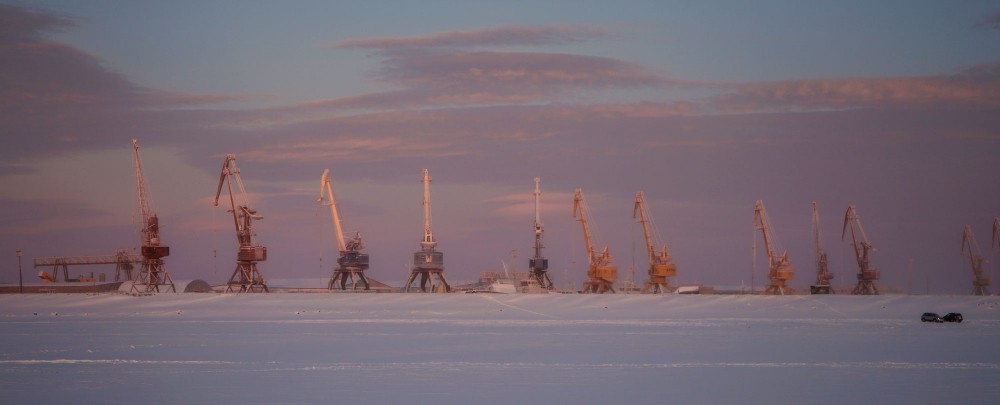
Novak also highlights the importance of Rosneft’s Pobeda oil field in the Kara Sea, the major deposit discovered in cooperation with ExxonMobil in 2014. According to the energy minister, the Pobeda holds about 130 million tons of oil and 500 billion cubic meters of natural gas.
Another project mentioned in the meeting is the Peschanka copper project in Chukotka, which is to deliver 500,000 tons of goods to the NSR by 2024.
According to Novak, the mentioned projects will provide a total of 65 million tons of goods per year for the NSR. By 2030, the annual volumes will increase to 95 million tons and by 2035 – to between 130-160 million tons.
Boosting infrastructure
The Russian Arctic plans lean on massive development of new infrastructure.
“It is not enough to build only port terminals, we have to build also pipelines, railways, develop aviation, energy capacities,” Medvedev underlined in the meeting.
Everything is to be centered around the Northern Sea Route. Included is also the so-called Northern Latitudinal Passage, the projected railway that will connect the powerful mineral and metal processing plants in Western Siberia with northern ports. The first part of the project includes 500 km of new railway, including a bridge across the Ob River. The second part of the project includes a new railway to Sabetta.
The price tag for the Northern Latitudinal Passage is 240 billion rubles (€3.2 billion), of which the government budget will account for only 5 percent, Prime Minister Medvedev said. When the rail link to Sabetta is ready, an additional 25 million tons of goods will find its way to the Northern Sea Route, the government says.
Among the first new regional objects to be built is the port of Utrenny, that will serve the Arctic LNG-2. According to Transport Minister Yevgeny Ditrikh, the new port will have a capacity to handle an annual 21.6 million tons and be ready for operations by 2024. A total of 152.7 billion rubles (€2 billion) are to be invested, of which 112.2 billion (€1,5 billion) will be federal money.
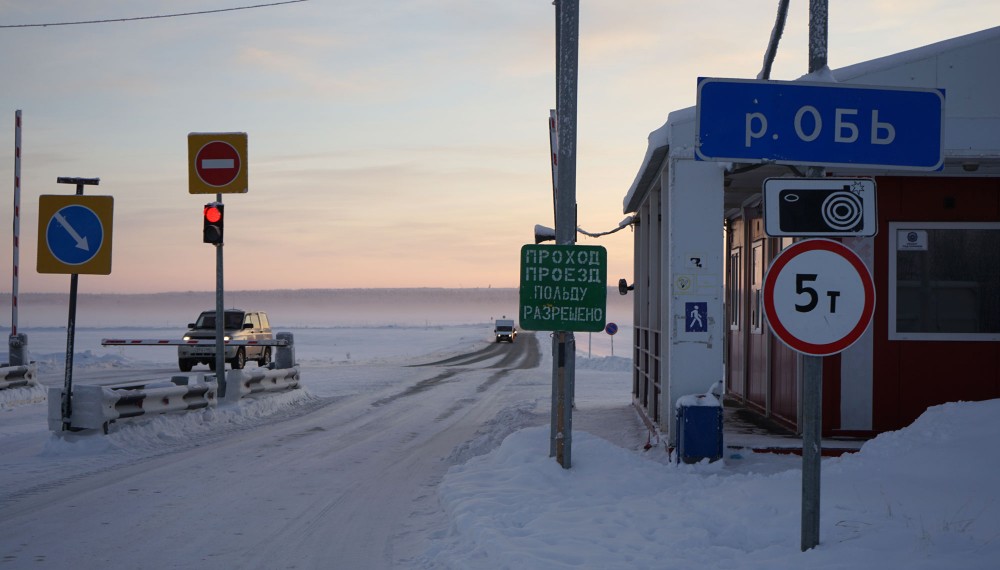
Terminal in Murmansk
Also new infrastructure outside the Northern Sea Route will be needed, the ministers underlined. A new terminal in the Ura Guba, Kola Peninsula, will have the capacity to handle an annual 20.9 million tons and be ready in 2023. A total of 20.1 billion rubles (€267 million) are to be invested, of which the government will provide only 900 million (€12 million).
In the meeting, Novatek leader Leonid Mikhelson insisted that the building of the terminal is moved forward to year 2022, in order to end the current temporary ship-to-ship reloading of LNG in Norwegian waters.
A similar terminal will be built in Kamchatka on Russia’s Pacific coast. That object will include 30.5 billion rubles (€405 million) of state investments, Mikhelson said.
Related stories from around the North:
Canada: Canada ill-prepared for Arctic shipping boom, G7 sustainability summit hears, Eye on the Arctic
China: China opens bids for its first nuclear-powered icebreaker, The Independent Barents Observer
Finland: Finland chooses Kirkenes in Norway for new Arctic railway terminal, The Independent Barents Observer
Norway: Russia’s Novatek says it found shipping partner for reloading Arctic LNG in Norway, The Independent Barents Observer
Russia: Fossil fuels drive shipping boom along Northern Sea Route, The Independent Barents Observer
Ssouth Korea: South Korea, an unlikely polar pioneer, hosts Arctic conference, Cryopolitics Blog
Sweden: Swedish icebreaker reaches North Pole for climate study, Radio Sweden
United States: World maritime body approves first Arctic ship routing measures, Radio Canada International

